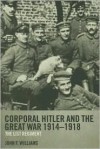Currently reading
"ANGELS TEN!" - In wartime, altitude is a fighter pilot's best friend

In "ANGELS TEN!", the author (Richard Gilman, a Canadian who had spent his formative years in Britain) reflects upon his experiences as a Spitfire pilot in the Royal Air Force (RAF) during World War II. Going into the Air Force had not been a natural choice for him, though his older brother had previously joined and was trained as a bomber pilot. By the summer of 1940, Gilman was in Liverpool, not sure of what he should do as a way of contributing to the war effort after short stints with the Auxiliary Fire Service and the Local Defense Volunteers (popularly known as the "Home Guard"). He looked across the street and saw in large, bold letters a sign bearing the words: "Royal Air Force Recruiting Centre." Curious, Gilman went inside upon the urging of a recruiting sergeant, who directed him to a warrant officer who persuaded him to sign some forms. Then Gilman was given a physical and before the day was over, had sworn an oath to bear allegiance to King George VI and defend the country. He was now in the RAF.
A couple of months would pass before Gilman was called up. He shares with the reader his experiences as a trainee pilot between November 1940 and April 1941. Flying training at the time had been accelerated in the RAF because of the critical need for fighter pilots to cover the losses recently sustained in the Battle of Britain. Gilman had formed a special bond with 4 other trainees, calling themselves "the 5 jolly aces." Sadly, tragedy would befall some of them. Gilman persevered, won his wings, and learned to fly the Spitfire. Then he spent the next several months with a squadron in Northern Scotland flying covering patrols for arriving convoys from Canada which had managed to survive the depredations of the U-boats in the Atlantic.
Gilman would have his share of close-calls. Then in November 1941, his squadron was transferred to Southeast England (not far where the "hot war" was, over the English Channel and German-occupied Europe nearby), not far from London. Unfortunately, Gilman was severely wounded shortly thereafter and spent more than a year in hospital.
Gilman speaks very candidly about his subsequent views on war, humanity, and the type of life he was able to enjoy with his wife and children. At 118 pages, this was a book I finished reading in a matter of hours.
 2
2













